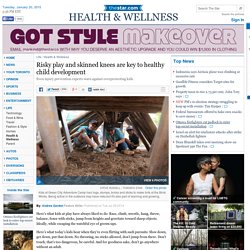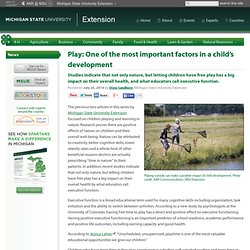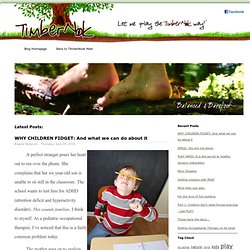

Nature Valley 3 Generations - #RediscoverNature. Error – (15US) CDA I HEALTH & DEV (001) Outlook Web App. NSTA News. Jonathan Gerlach On its surface, “STEM” is the acronym of science, technology, engineering, and mathematics.

However, when you pull that first layer away, you reveal the most elaborate puzzle in the education world. Most educators know what STEM stands for, but how many really know what it means? A common definition isSTEM education is an interdisciplinary approach to learning where rigorous academic concepts are coupled with real-world lessons as students apply science, technology, engineering, and mathematics in contexts that make connections between school, community, work, and the global enterprise enabling the development of STEM literacy and with it the ability to compete in the new economy.
(Tsupros, 2009) This definition raises many issues, though. When STEM was first introduced as “the next big thing,” the thoughts behind it basically centered around two issues. Jonathan Gerlach is an Albert Einstein Distinguished Educator working on federal education policy on Capitol Hill. Risky play and skinned knees are key to healthy child development. Zoom.

Play: One of the most important factors in a child’s development. Studies indicate that not only nature, but letting children have free play has a big impact on their overall health, and what educators call executive function.

Posted on July 25, 2014 by Dixie Sandborn, Michigan State University Extension Playing outside can make a positive impact of child development. Photo credit: ANR Communications | MSU Extension The previous two articles in this series by Michigan State University Extension focused on children playing and learning in nature. Research proves there are positive effects of nature on children and their overall well-being. Executive function is a broad educational term used for many cognitive skills including organization, task initiation and the ability to switch between activities. It's time we gave our children permission to get outside and get dirty.
I grew up on a farm on the edge of Nowheresville, Hampshire.

I was a speccy, geeky kid who loved experimenting with nature. While most of the people at school were experimenting with drugs or each other, drinking copious amounts of cider and getting pregnant, I was experimenting with frogspawn. I was fascinated by the stuff. I kept a frogspawn collection well into my teens, trying to raise tadpoles in the water tanks on my parents’ farm. One summer, I tried to see what would happen if you fed tadpoles different types of food. Now I work for the National Trust, coordinating our efforts to reconnect children with outdoors. Natural-terrain schoolyards reduce children’s stress, says CU-Boulder study.
Outdoor Education: Children develop sensory integration skills. Let ’Em Eat Dirt. In the tardy twilight of a Puget Sound evening, we caught a glimpse of a boy, maybe 6 or 7, playing in mud exposed by low tide.

Ankle-deep in vibrant muck, he called out a discovery to his father. “I found a bunch of baby crabs,” he said. “A jillion of them.” From there, he slipped into the woods, chasing some other curiosity of the natural world. A butterfly, I think. “You don’t see much of that anymore,” a friend said. When we stop children taking risks, do we stunt their emotional growth? - Features - Health & Families. For parents, this is the dilemma of everyday life in the urban jungle: do we keep our children on a metaphorical umbilical cord or cut them free?

It's little wonder that kids are growing up afraid to take risks when we're so scared of letting them live for themselves. And admit it, if you're a parent, you are scared, your heart beating a little faster at every headline of woe or tree they climb. Even, or perhaps especially, when we're paying someone else to look after them. Thus a working mum grabbing lunch in a café calls to check up on her child. First eavesdropped question, "Is the playground nice? " We like our playgrounds cushioned and our children accounted for: they're signed up to music lessons, drama classes and organised sports as soon as they can walk and talk – the latest being mini rugby clubs for tots as young as two. A Danish conference hall gently buzzes with grown men and women trying to replicate the exact pattern of six coloured plastic bricks being held up on stage.
The REAL reason by children fidget. A perfect stranger pours her heart out to me over the phone.

She complains that her six-year-old son is unable to sit still in the classroom. The school wants to test him for ADHD (attention deficit and hyperactivity disorder). This sounds familiar, I think to myself. As a pediatric occupational therapist, I’ve noticed that this is a fairly common problem today. The mother goes on to explain how her son comes home every day with a yellow smiley face.
The mother starts crying. Over the past decade, more and more children are being coded as having attention issues and possibly ADHD. The problem: children are constantly in an upright position these days. Students Who Lose Recess Are the Ones Who Need It Most. Urban Eyes.